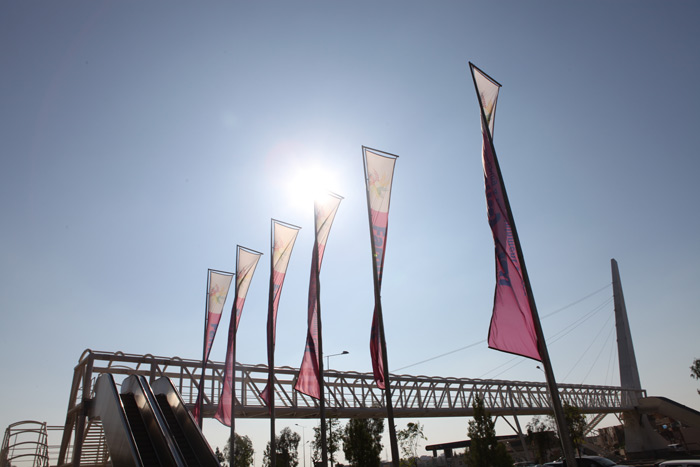Ease of Doing Business in Iraq’s Kurdistan
The US-Kurdistan Business Council led a delegation of 48 members representing 30 companies from a diversity of business sectors.

Given that the larger share of FDI is currently coming into the region from Egypt, Lebanon, Turkey, Kuwait – close neighbours, the question could be asked why not a show of larger US or European role. Are these heavy-hitters hesitant to invest in Kurdistan or is a matter of time.
“The neighbouring countries do invest because of the proximity to Kurdistan – especially Turkey – and because of the good trading policy (we have) with surrounding countries. Thus our neighbouring countries were more motivated to come to Kurdistan region, but now even the American and European companies are heading to Kurdistan region and trying to make their first steps here.”
In an effort to boast the Kurdish region’s private sector, the KRG has been aggressive in hosting trade conference in Kurdistan and in sending trade missions abroad.
KRG officials have visited Austria, Slovakia, Spain, Italy, the UK, Poland, Turkey and Iran.
Countries that have led mission to the region range from the UK, France, Germany, Italy, Austria and Spain, the Netherlands, Northern Ireland, Turkey, Kuwait and the UAE.
In October, President Masoud Barzani welcomed the largest ever American business delegation to date, which was visiting the region as part of the Erbil International Fair.
The US-Kurdistan Business Council led a delegation of 48 members representing 30 companies from a diversity of business sectors.
The US-Kurdistan Business Council led a delegation of 48 members representing 30 companies from a diversity of business sectors.
Garde said that he noticed on a weekly and monthly basis the names of new companies from France, the United Kingdom, USA, and Germany.
As an indicator of the growing importance of the Kurdish region’s economy, there are now 17 consulates and foreign representations established in the region.
Mr Garde’s own bailiwick, the Sana Group is in the general contracting business, “Sana Group also has businesses in trading and agriculture, but the main area of focus for us is the contracting sector in Kurdistan.”
On the question of his economic forecast – given that the economy has gone from zero to 100 km-an-hour in a short time, he said: “My vision is that Kurdistan has a very bright future. While in Dubai they have mostly trading and petrol, we in Kurdistan have petrol, trading, industry, and tourism, and we have many people available in these fields, we also have a vast territory, rain, and rivers.”
Striking a decidedly optimistic note, Garde said: “There are many good and positive things about this country, and I welcome all investors to come to Kurdistan, to invest here and start their projects as there is still a lot of space for investments and further development. Kurdistan offers many benefits to investors.”
He added that the process for foreign companies entering the region had become increasingly easy, in the interest of cutting through the red-tape and usurious tariffs common to elsewhere in the MENA region.
Currently, it takes approximately 30 days to start a business in Kurdistan. By law, the Investment Board is required to process applications within 30 days of submission. Detailed, professional proposals have the potential to be processed more quickly, in approximately five to ten days “Any foreign company can establish itself here and be registered in its own name; there is no need for a partner from Kurdistan. The other way is to find a local partner in Kurdistan.’ He said.
The feedback from venture partners has been positive, with partners noting the bottom-line benefits and pushing to establish more joint ventures where mutual interest and need allows.
“It is true that every work hides problems. Kurdistan is nevertheless a good place to work, our local companies want to work and they want to work for Kurdistan. Our local companies have done a great deal of work and cooperation with Turkish, Egyptian, and Lebanese companies, ”Garde said
While being part of Iraq, “The difference lies in the business,” he added.